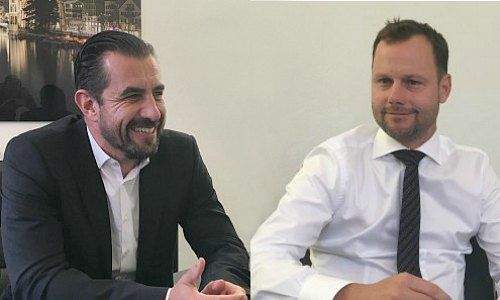Robert Zimmermann, how did you come to recruit a banker to a job in the countryside?
Robert Zimmermann: It wasn't that far-fetched: Baumann Springs was looking for a human resources head for the whole group, and Stephan had already held this role at HSBC in Switzerland. He had signaled to me that he would be open to something outside of banking in his career path.
Easier said than done.
Yes, but it became apparent in the course of the recruiting process that Stephan had not only the skills for the job but also the mental flexibility to risk a big step like this. Both are key requirements to make such a change.
You're also a former banker, including with Goldman Sachs. You decided in 2011 to co-found SchulthessZimmermann, an executive search firm. Why did you change?
It wasn't a move out of necessity. Working for Goldman Sachs means you have lots of internal career options as well as healthy ones elsewhere in the finance sector. But it was always clear to me that I wanted to run my own business eventually.
Why headhunting?
The primary reasons were my background and my network in finance as well as the fact that as an executive I was always passionate about recruiting.
«You have to have the curiosity to look outside of finance»
I can claim a client- and project-oriented mindset for myself. In the end, that was the catalyst that led me to try to establish myself in executive searching.
As a headhunter, how do you know when a veteran banker is really serious about leaving the finance industry?
The main thing is the intellectual curiosity to look outside of the banking industry. The motivation is also important: what are the reasons behind it? Are they financial in nature or prestige-related?
«I wouldn't even hire most bankers to operate a forklift»
Is someone prepared for an entirely new structure of their workday, or in case of working for themselves, are they prepared to set up their own structure? And probably the most important point: how much risk can this person tolerate?
Stephan Peterhans, what was the most difficult thing about your career switch?
Stephen Peterhans: The cultural change from an American and British influenced global bank to a family-led firm with relatively little international experience was the most difficult.





































